Gay man hits out at Australian senator during same-sex marriage debate
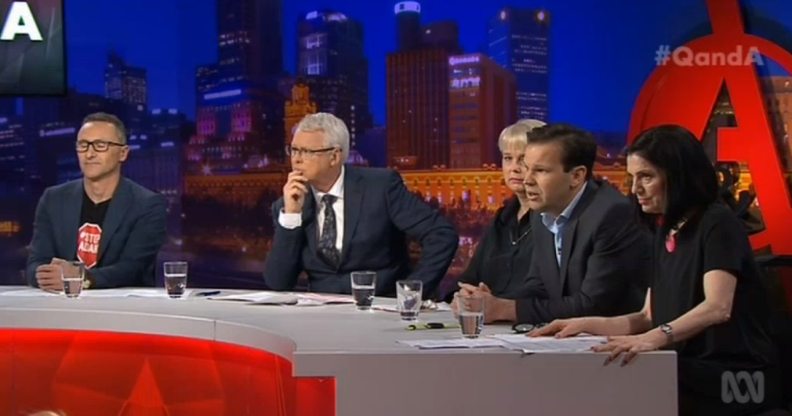
(Video/ABC News)
Politicians on ABC’s Q&A panel were grilled by a young gay man during a same-sex marriage debate earlier this week.
The man, named Gordon, asked them to explain why Australia’s leaders aren’t protecting “society’s most vulnerable people” during the current campaigns regarding same-sex marriage laws.
Gordon spoke to Nationals senator Matt Canavan, and said: “Mr Canavan, I’m a young gay man who had the misfortune of attending an underprivileged public school.
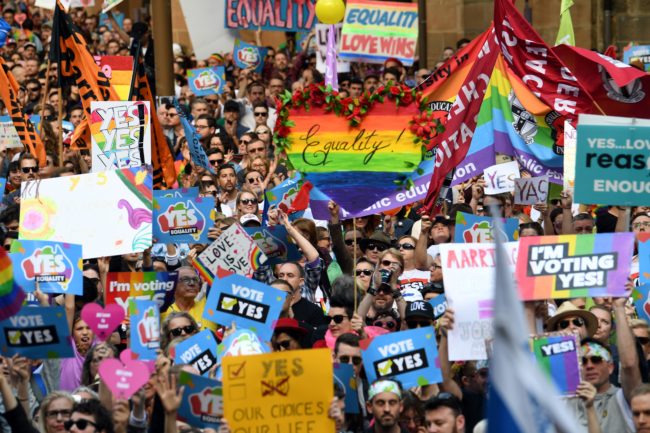
Protests in Australia (SAEED KHAN/AFP/Getty Images)
“I endured slurs on a daily basis, was spat upon by more aggressive bullies and found countless numbers of notes stuck in my locker, decrying me as bringing shame to my family or being riddled with AIDS and telling me that I was wasting my life.
“I was also told that I was threat to children and that being gay was no better than being a paedophile.”
Explainer: What the hell is going on with same-sex marriage in Australia?
He continued to say: “Now you, Mr Canavan, have criticised my community as being ‘delicate little flowers who need to grow a spine in the face of abuse’.
“Isn’t the role of leadership to support society’s most vulnerable, rather than kick them while they’re down in hopes of a bit of conservative point scoring?”
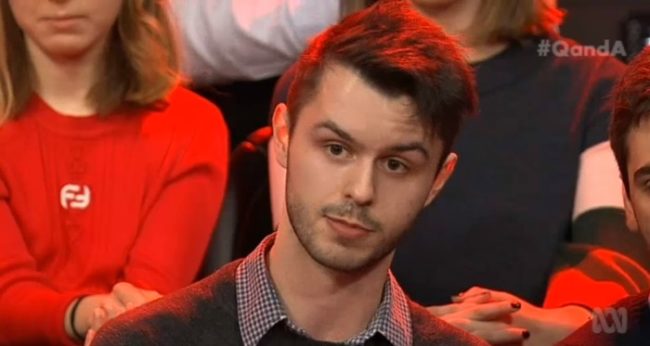
(Video/ABC News)
Senator Canavan attempted to justify his comments by claiming that, when using the phrase “delicate little flowers”, he was referring to people on both sides of the debate.
He went on to say: “I am worried about the fact that we are struggling in modern democracy to respect other people’s opinions.
“I think we should be able to have a respectful debate on these issues, and sometimes they’re sensitive, but I also think that living in a democracy means sometimes you’re going to meet people and hear from people who you disagree with.
“That can be frustrating and painful […] but that’s democracy.”
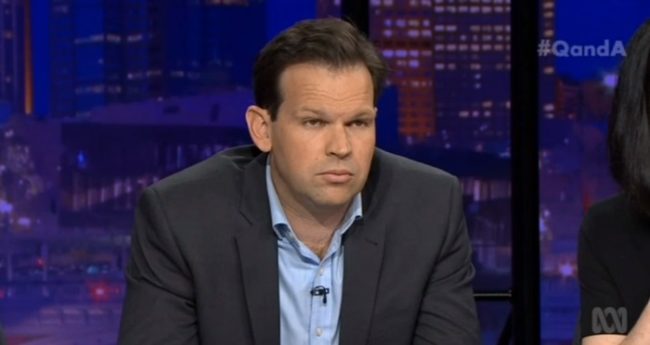
(Video/ABC News)
He continued: “You have to be able to accept that some people have a different view to you.
“I’ve contributed a lot to this debate, I’ve tried to do so in a respectful way, but it’s frustrating when others just seek to shut your view down, just because you hold a particular view.”
He was then interrupted by Senator Di Natale, who replied to Canavan’s complaint about being silenced by saying: “Like you did to Westpac when you said Westpac shouldn’t have spoken to their employees advocating for a Yes vote?
“You called it same-sex blackmail,” he added.
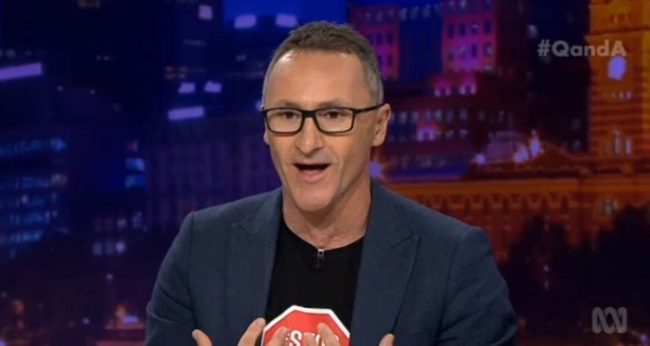
(Video/ABC News)
This was in reference to Senator Canavan’s comments about Westpac bank sending emails to its staff encouraging them to vote Yes in the same-sex marriage postal survey.
Canavan refuted Natale’s accusation, although he did admit to calling the email “an attempt at blackmail.”
Canavan responded to this by saying: “It is clear that there are lots of people that want to change the marriage act.
“I fully respect someone having a view to do that, I understand that, there are some good arguments for it.
“But what I’m very concerned about in the case of a Yes vote, is that there is no bill before the parliament about what type of protections would be put in place to protect parents [who support traditional marriage], to allow their children to be taught the version of marriage that they support, to protect those of religious positions.”
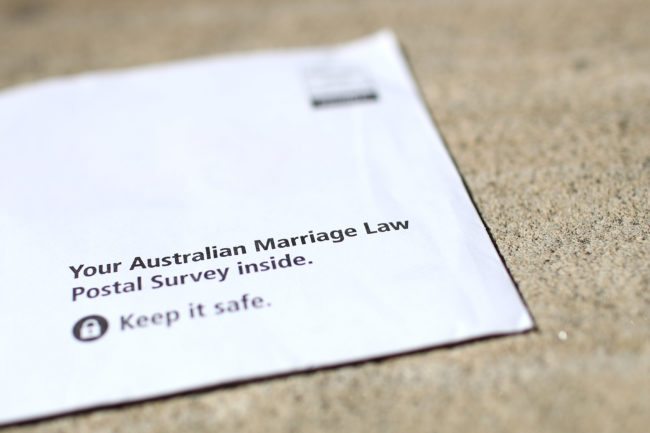
Australia same-sex postal vote (Photo by Cameron Spencer/Getty Images)
The panel then went back to Gordon, who said that he did not accept Canavan’s comments.
“We’ve lived in a democracy for more than 100 years,” Gordon said.
“Why is this one ‘debate’, as you call it – which is about people’s lives at the end of the day – why does this need a different brand of democracy to any other law that we’ve ever passed?” he added.
Richmond Football Club president Peggy O’Neal O’Neal, who is of US descent, said she was disappointed that the government had chosen to resolve the matter publicly rather than decide the matter in Parliament.
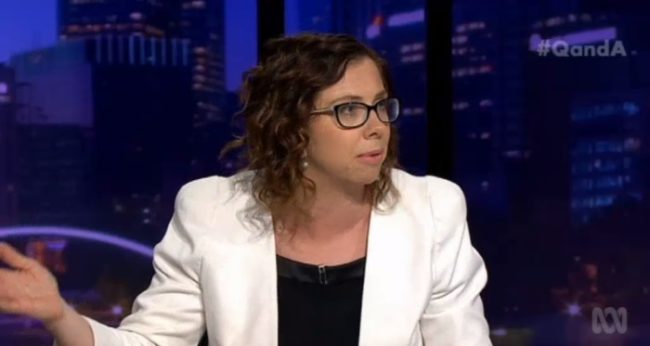
(Video/ABC News)
“Many countries around the world have had it [marriage equality] for decades now. The world hasn’t stopped. Those countries and their economies and their families have still gone ahead,” she said.
“If you see it as more equality — not taking things away from people but giving things to other people — I don’t see why it’s so difficult, and why we have to have a public debate on it when the politicians are supposed to represent the public anyway.”

